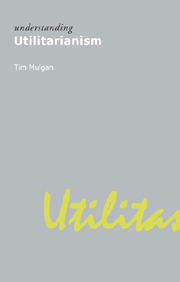6 - Acts, rules and institutions
Summary
Act-utilitarianism
Suppose you are a utilitarian, committed to maximizing human wellbeing. You have a view of well-being. What should you do? The utilitarian tradition offers four broad options: act-utilitarianism, indirect utilitarianism, rule-utilitarianism and institutional utilitarianism. This chapter examines these alternatives.
The simplest form of utilitarianism is act-utilitarianism. The right act is the act that produces the most well-being. This suggests that you should aim, on each occasion, to maximize welfare. This picture of utilitarians as constant calculating maximizers faces two sorts of objection: intuitive and utilitarian. The previous chapter exposed the first: actutilitarianism is unjust, immoral, and unreasonably demanding. As we will see, one primary reason for abandoning act-utilitarianism is to avoid the injustice and demandingness objections. However, actutilitarianism has other problems. In particular, it faces an objection on utilitarian grounds – that it is self-defeating because constant calculators do not maximize welfare. If our target is maximum welfare, we will sometimes do better if we do not aim directly at that target. Why is it unwise to aim directly at happiness? Because some valuable results are calculatively elusive – they are not available to those who deliberately aim at them. Here are some common examples.
Spontaneity. If you calculate too precisely, or focus too directly on a desired result, you will not achieve it. For instance, suppose you are engaged in an artistic endeavour which is most valuable if performed spontaneously. …
- Type
- Chapter
- Information
- Understanding Utilitarianism , pp. 115 - 130Publisher: Acumen PublishingPrint publication year: 2007



